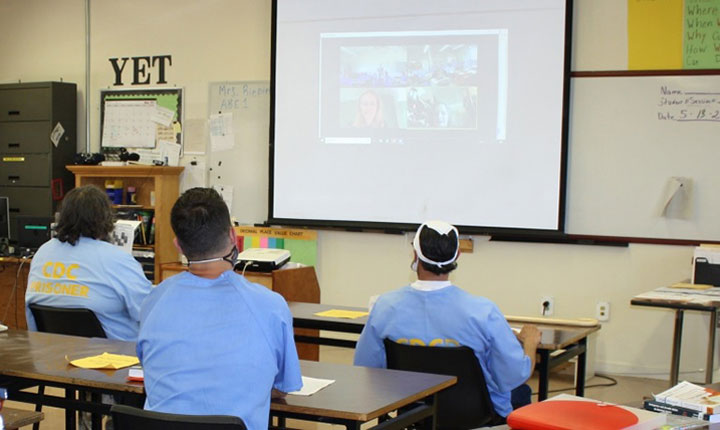A new program offered by Fresno State will allow incarcerated students at Valley State Prison and Central California Women’s Facility to earn a bachelor’s degree in social science, expanding access to higher education among one of the most marginalized populations in the state.
The new program is a collaboration between the College of Social Sciences, the Division of Continuing and Global Education and the California Department of Corrections and Rehabilitation.
The degree program was accredited on May 5 by the Western Association of Schools and Colleges — an organization that provides accreditation of public and private universities, colleges, secondary and elementary schools in California and Hawaii. Incarcerated students will receive face-to-face coursework from Fresno State instructors.
“Given the demographics of the prison population, we anticipate that the student population will disproportionately consist of first-generation college students, students of color and students from impoverished backgrounds,” said Dr. Scott Moore, dean of the Division of Continuing and Global Education at Fresno State. “Without the engagement of a university like Fresno State, these students would have no access to face-to-face opportunities to earn a bachelor’s degree. The presence of Fresno State at these facilities will help enhance the existing culture of learning that has the power to change lives.”
The California Department of Corrections and Rehabilitation believes in the transformational power of education and is committed to providing opportunities for academic growth during incarceration, said Brant Choate, director of CDCR’s Division of Rehabilitative Programs.
“Incarcerated students who achieve a bachelor’s degree are the least likely to return to prison,” Choate added. “This program is good for public safety.”
The new degree program expands access to higher education following the passage of SB 1391 in 2014. The State of California already offers associate degree programs from community colleges in 33 of the state’s 34 prisons and has more than 15,000 students enrolled in face-to-face and correspondence college programs as of fall 2021. Initially, this new degree program will serve 27 students at each facility.
Valley State Prison in Chowchilla is a Level II, general population institution open since 1995, and was converted from an all-female to an all-male institution in 2013. Central California Women’s Facility, also in Chowchilla, opened in 1990 and is the largest female institution in the state.
“Providing opportunities for those housed at CCWF to obtain a bachelor’s degree is the meaning of rehabilitation,” said Warden Michael Pallares. “They are choosing to become a better person than when they arrived in prison.”
Valley State Prison Warden Landon Bird agreed. “Earning a four-year degree changes the trajectory of an incarcerated person’s life,” Bird said. “They realize they are not defined by what got them there. They can invest in themselves and change their future.“
Office of Correctional Education Superintendent Shannon Swain states, “The multi-generational impact of correctional education helps transform students, their families and their futures. The majority of folks incarcerated in CDCR institutions will eventually return to their communities; it just makes sense to help them return with new knowledge, skills and abilities.”
Research indicates that correctional education is a solid investment in public safety. The RAND Corporation has published numerous formal evaluations citing correctional education as effective in reducing recidivism.
Since spring 2021, Fresno State’s Division of Continuing and Global Education has offered standalone upper-division courses in Valley State Prison and Central California Women’s Facility on a pilot basis, and the response from students has been overwhelmingly positive.
The cost of this program will be funded through the California Department of Corrections and Rehabilitation. Starting in fall 2023, students may be eligible for Federal Pell grants.
For more information, visit cge.fresnostate.edu.





